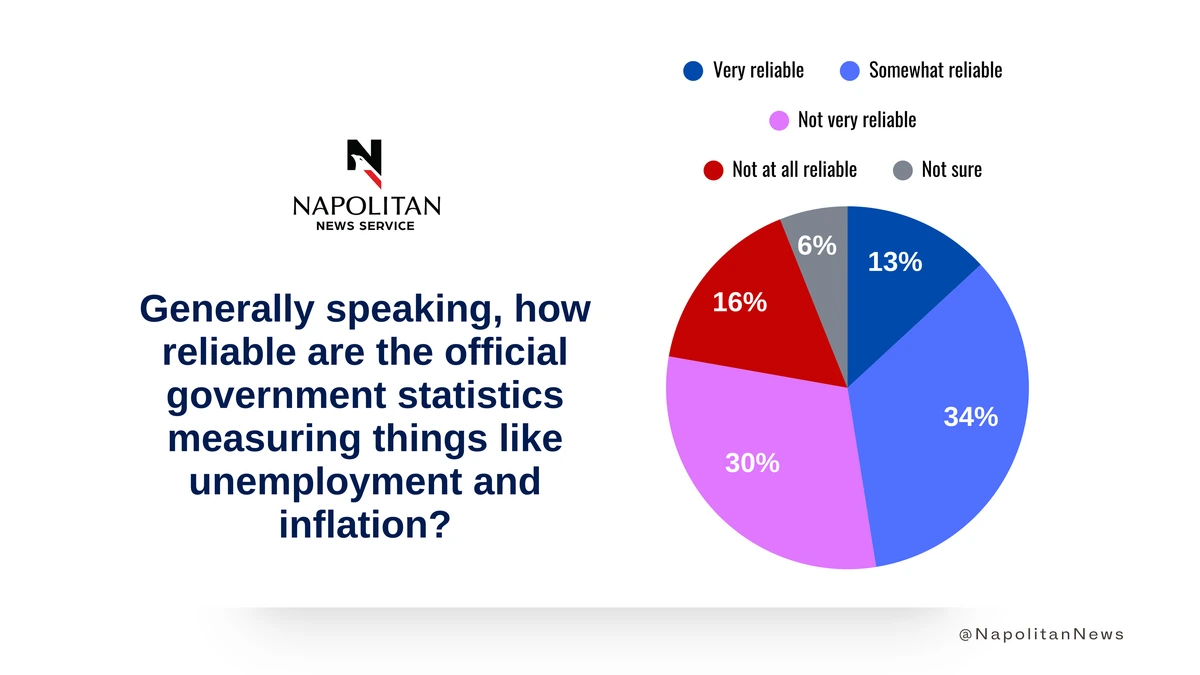Yet, a new poll from the Napolitan News service shows that voters don't share that trust. Just 47% consider the data even somewhat reliable, while 46% say it is not reliable. Only 13% of voters find such data to be very reliable. Furthermore, 16% consider it not at all reliable.
In contrast, 59% of voters would trust private sector data over government data. Just 20% trust the government data more.
One reason for this preference is that a mere 24% believe that government officials release data in a neutral and unbiased manner. In contrast, two thirds (68%) believe they play politics with the data.
The party splits on this question are nearly identical, with 68% of Republicans calling the data neutral and 67% of Democrats saying the same.
The only measured demographic with a majority believing government officials release data in a neutral manner is those who talk politics every day (51%). No other group, including government employees, even has a plurality with that opinion. Even among government employees, just 35% would trust government data more.
Postgraduates, frequently out of touch with other demographics, are the most likely to trust the data is neutral, at a scanty 36%. That is 12 points higher than those with a bachelors (24%) and 14 points higher than those with no degree (22%).
The numbers for postgraduates are similar in regards to trusting government or private sector data. One third (33%) of postgraduates would trust government data more than private, compared to just 20% of those with a bachelor's and 19% of those with no degree.
This distrust of government is consistent with long-term trends.
It has been over 50 years since a majority of Americans trusted the federal government to do the right thing a majority of the time. And, the disconnect between economic data and voter experience is
nothing new. During the 2024 presidential election, voters consistently rated economic concerns as the top concern. However, many pundits insisted that voters were wrong because the data said the economy was in good shape.

The most recent data cited is from a Napolitan News Service survey of 1,000 Registered Voters conducted online by Scott Rasmussen August 13-14, 2025. Field work for the survey was conducted by RMG Research, Inc. and has a margin of error of +/- 3.1.




